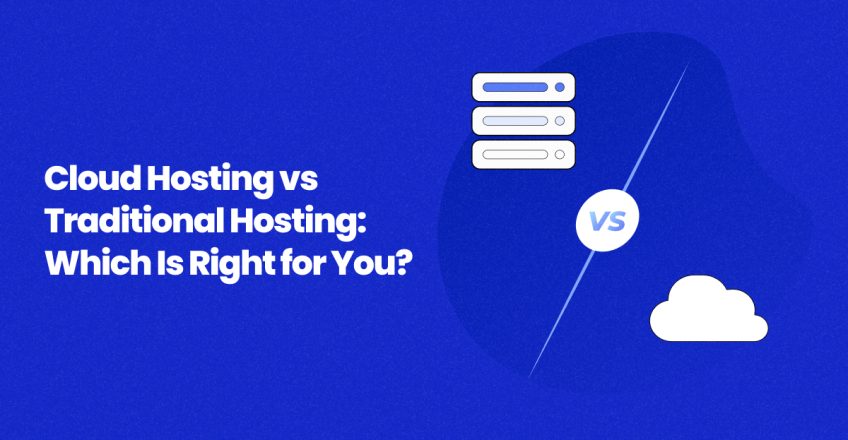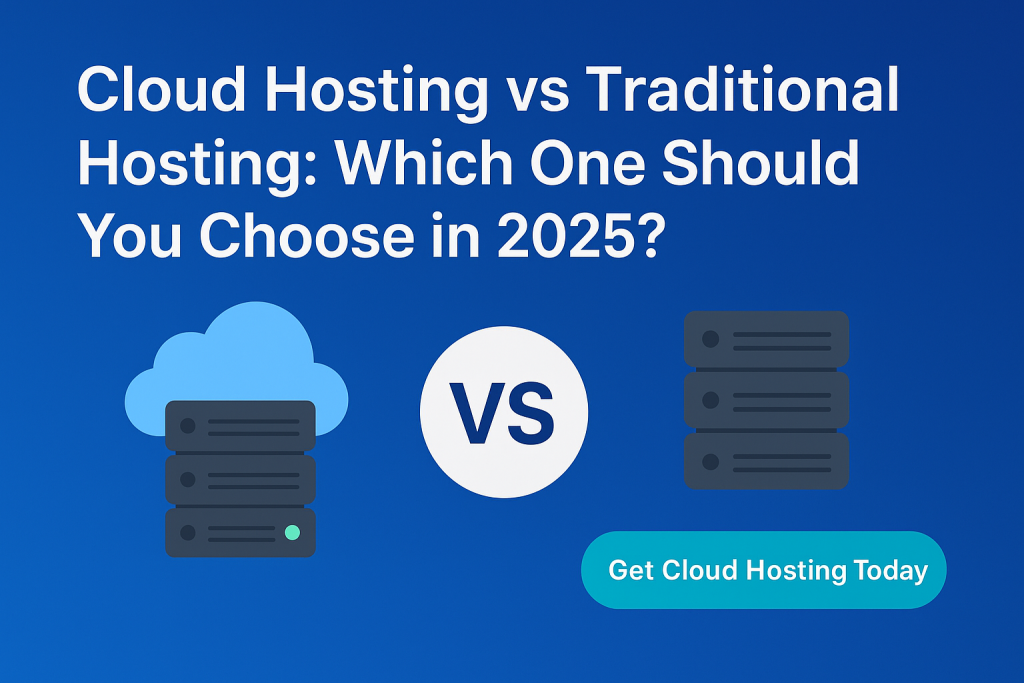
The hosting industry is evolving rapidly, and in 2025, businesses face a crucial decision: stick with traditional hosting or move to cloud hosting. While both have their advantages, the cloud is redefining how companies build, scale, and secure their websites.
If you are confused about which option is right for your business, this blog will guide you through the differences, benefits, and real-world use cases.
What is Cloud Hosting?
Cloud hosting uses a network of interconnected servers to host and deliver websites. Unlike relying on a single machine, your site pulls resources from multiple servers, ensuring high uptime, flexibility, and scalability.
This distributed nature means that if one server goes down, others keep your site running — offering a much more reliable solution than traditional hosting.
What is Traditional Hosting?
Traditional hosting refers to shared, VPS, or dedicated servers. Your website is hosted on a single physical server, and its performance depends on that server’s health, bandwidth, and storage.
While this method is straightforward and often more affordable, it lacks the flexibility and resilience that cloud hosting provides.
Key Differences Between Cloud & Traditional Hosting
1. Scalability
- Cloud Hosting: Instantly scale resources up or down based on traffic.
- Traditional Hosting: Fixed resources, requiring upgrades to move to higher plans.
2. Performance
- Cloud: Load balancing across multiple servers improves uptime and speed.
- Traditional: Server failure can lead to downtime and poor performance.
3. Security
- Cloud: Advanced firewalls, DDoS protection, automatic backups, and distributed security.
- Traditional: Security depends on server setup and hosting provider; riskier for larger businesses.
4. Cost
- Cloud: Flexible, pay-as-you-go pricing. You only pay for the resources you use.
- Traditional: Fixed monthly or yearly pricing regardless of actual usage.
5. Flexibility
- Cloud: Adapts to sudden traffic spikes without downtime.
- Traditional: Limited handling capacity — sudden surges can crash websites.
Why Businesses in 2025 Prefer Cloud Hosting
- Remote Accessibility: Manage hosting and resources from anywhere with real-time monitoring.
- AI-Powered Optimization: Intelligent resource allocation, predictive scaling, and smart traffic management.
- Eco-Friendly: Uses shared data centers that consume less energy compared to traditional servers.
- Global Reach: Content delivery through worldwide server locations, ensuring faster loading for international users.
- Business Continuity: Disaster recovery options and automatic failover minimize downtime.
Best Use Cases
- Choose Cloud Hosting if:
- You run an e-commerce store or SaaS platform.
- You expect fast growth or seasonal traffic spikes.
- You serve a global audience.
- Security and uptime are top priorities.
- Choose Traditional Hosting if:
- You’re a small local business.
- You need a budget-friendly solution for a basic website.
- You don’t expect sudden spikes in traffic.

FAQs
1. Is cloud hosting more expensive than traditional hosting?
Not necessarily. With cloud hosting, you pay only for the resources you use, which often makes it more cost-effective than overpaying for unused capacity in traditional hosting.
2. Will small businesses benefit from cloud hosting?
Yes. Even small businesses gain better uptime, faster websites, and improved scalability. However, traditional hosting can still work as a budget-friendly entry option.
3. Is cloud hosting safe?
Absolutely. With distributed systems, backups, and built-in disaster recovery, cloud hosting offers enhanced security compared to most traditional options.
Conclusion:
In 2025, cloud hosting is the future of website hosting. It offers superior performance, flexibility, and security for businesses of all sizes. While traditional hosting may still work for small websites with limited needs, the scalability and cost-effectiveness of cloud hosting make it the smarter and future-proof choice.
At BizIntegrate, we specialize in helping businesses transition smoothly to cloud hosting solutions, ensuring speed, security, and long-term growth.
